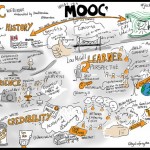 I enjoyed being a part of the ‘Voice of Apprenticeships’ Conference this week, where I presented immediately before Skills Minister Matthew Hancock MP. I shared my views on how technology is changing not just how we must think about educating the next generation but how we engage and reach these students today.
I enjoyed being a part of the ‘Voice of Apprenticeships’ Conference this week, where I presented immediately before Skills Minister Matthew Hancock MP. I shared my views on how technology is changing not just how we must think about educating the next generation but how we engage and reach these students today.
MOOCs, Massive Open Online Courses, are getting a lot of press currently and the UK’s FutureLearn programme led by the Open University is leading the way. Smartphones and tablets are changing how we absorb information and education must follow suit, in smaller, bite-sized chunks, when and where the learner chooses to digest it.
Education may well take the form of a pick-and-mix bag of choices, but hopefully not as expensive as the pick-and-mix outlets selling confectionery. It may be that the role of the education institution includes tracking and approving building blocks of learning that add up to a unique qualification and that very few degrees actually look the same, but are pieced together based on an individual’s requirements and more importantly, the needs of a job role and the workplace.
What are the choices? History and prestige means the top tier universities will always have a demand for places, because of the prestige of having the institution listed on one’s CV or profile on LinkedIn. But for the rest, there is no choice. The majority of learning establishments have to change their value proposition; a student in a small town in England, or even as far as Africa or Asia, won’t pay to attend a mediocre lecture, when they can learn online from world experts.





